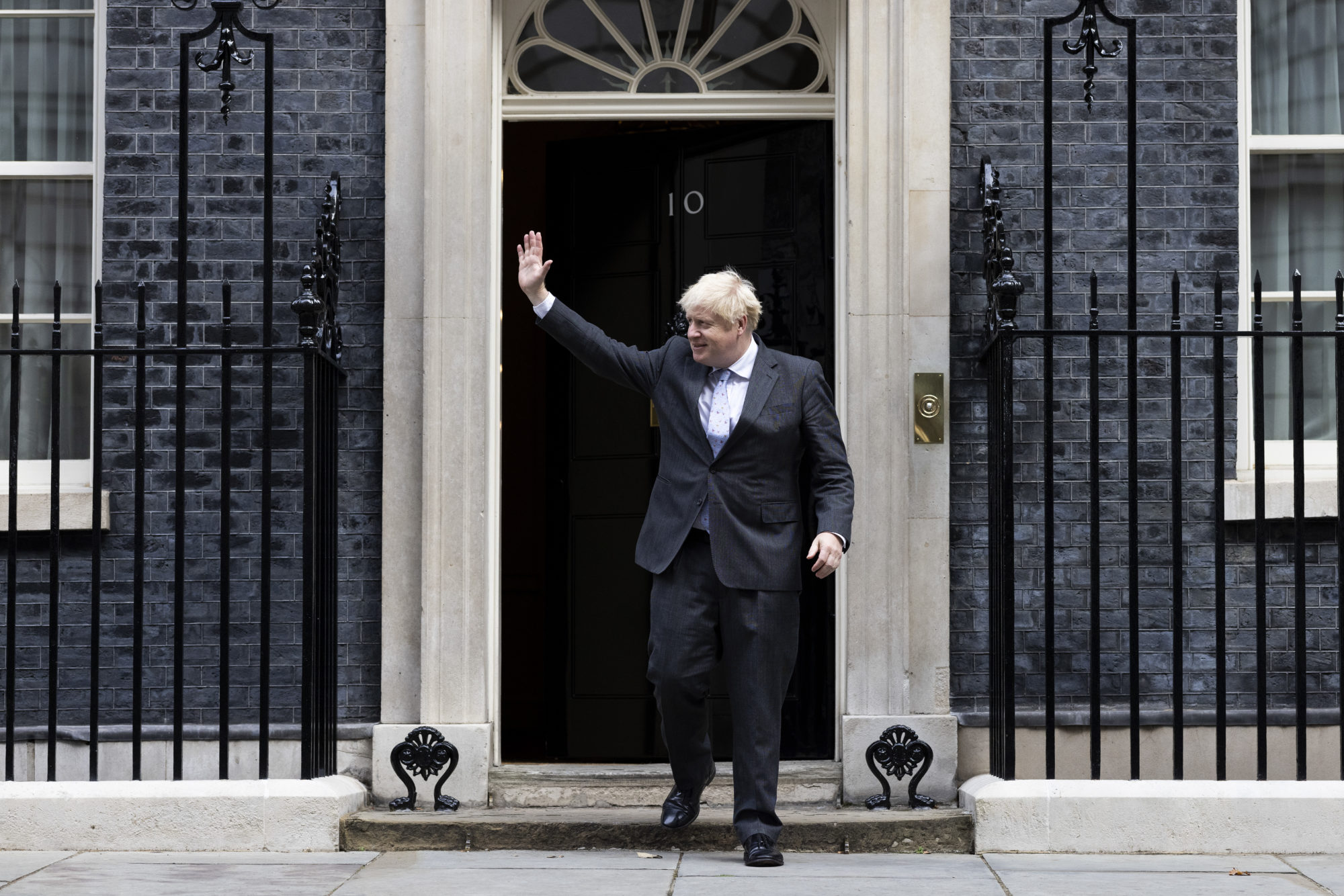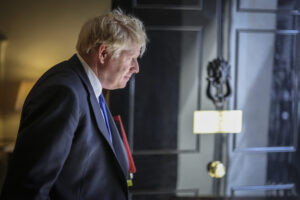Flickr / Simon Dawson / No 10 Downing Street
So it begins, the fall of Boris Johnson. After a tumultuous week, the prime minister’s undoing has been two-fold: allegations that multiple parties took place in Number 10 Downing Street and the Treasury, and allegations that Johnson lied to Lord Geidt over his Downing Street flat refurbishment. Yet the most crucial have been pictures, newly released, that show Johnson hosting a Christmas quiz last December in breach of coronavirus restrictions. We may not know when Johnson falls — it may be days, weeks or months. But one thing is clear: it is the beginning of the end. Johnson’s political obituary has already been written.
“Two years on…from Boris’s biggest triumph he has, not to put too fine a point on it, fucked it,” one Conservative MP laments. “The trouble is, no one likes him. He has never been an MP who gets along with people, so it means he has no support base inside the Commons,” claims another.
Johnson’s integrity and authority has finally come into intense scrutiny in the public eye. Even right-wing papers, those traditionally supportive of the Johnson project — The Times, the Spectator and The Sun — have turned. As trust and confidence in Johnson has plummeted, the Conservatives have fallen to their worst poll rating in eleven months. Johnson’s personal rating, meanwhilst, has also plummeted to an all-time low.
The damage Boris Johnson has done on the nation cannot be understated. While much of the past week’s impact focuses on the rule of law and the damage done to the office of prime minister, the greatest has been Britain’s fight against the COVID-19 pandemic. Johnson has lost his own moral authority to lead Britain through another Omicron wave. The message to the public has been clear: there is one rule for those in government, and another for the public. Johnson’s credibility remains in tatters.
The end of Boris Johnson is near. If Johnson resists the pressure to resign following the leaked photographs obtained by The Mirror, and absent a vote of no confidence, Johnson’s political career will rest heavily on two important, up-coming events: the Parliament vote on the introduction of Plan B restrictions, and the North Shropshire by-election scheduled for 16 December. More than 60 Conservative MPs are against Plan B restrictions, and a prime minister who has to rely on opposition votes to push through the changes will face humiliation, especially one who commands such a large majority. Equally, a failure to win votes in North Shropshire may prove to Conservative MPs that Johnson’s reputation has tarnished his party — one that cannot be removed until Johnson himself is removed.
Johnson’s political career now rests on rocky foundations. His position remains untenable. As the Conservative Party looks to break with Johnson, eyes are turning to the prime minister’s successor, somebody who can steady what has been two years of scandal and instability.


